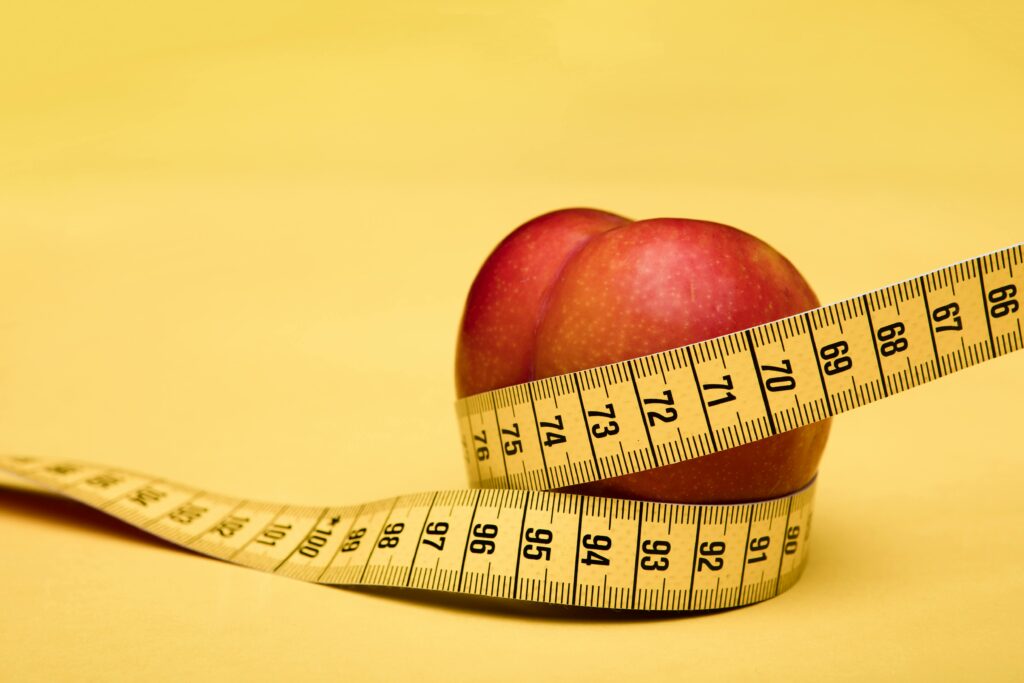Women Weight Loss Strategies is crucial to developing effective strategies. Biological, psychological, and societal factors all contribute to how women approach weight management. By delving into these areas, women can better equip themselves to tackle their weight loss journey.
Losing weight is a journey that’s deeply personal, especially for women. From hormonal changes to busy lifestyles, women face unique challenges when it comes to shedding extra pounds. That’s why a one-size-fits-all approach often falls short. Women need strategies that are tailored to their bodies, goals, and daily routines.
This guide explores the most effective Women Weight Loss Strategies specifically designed for women. Whether you’re looking to drop a few pounds, tone up, or completely transform your lifestyle, you’ll discover practical tips, nutritional advice, and proven workout methods that align with your needs. More than just quick fixes, these strategies are about creating sustainable habits that lead to long-term health and confidence.
How Women Bodies Respond Differently to Weight Loss
It’s important to recognize that women bodies differ from men in terms of weight loss. Hormones, metabolism, and body composition all play significant roles in how women lose weight. For example, women naturally have a higher percentage of body fat compared to men, which can affect how weight is lost and distributed. Hormonal fluctuations, especially during menstrual cycles, can also cause weight to fluctuate, which can be frustrating but is entirely normal. Understanding these differences can help women set realistic goals and expectations, avoiding the common pitfall of comparing their progress to men’s.

The Impact of Hormones on Weight Loss
Hormones such as estrogen and progesterone play crucial roles in weight regulation for women. These hormones can affect where body fat is stored and influence appetite and metabolism. During different life stages, such as puberty, pregnancy, and menopause, hormonal changes can present additional challenges to weight management. Recognizing these hormonal influences can help women tailor their weight loss strategies more effectively, such as by adjusting their diet or exercise routines during specific times of the month.
Men vs Women Losing Weight Faster?
do men lose weight faster than women? One common question is whether men lose weight faster than women. The answer is often yes, due to differences in muscle mass and metabolism. Men typically have more muscle, which burns more calories at rest, leading to quicker weight loss. However, with the right strategies, women can achieve similar success. It’s important for women to focus on building muscle through strength training, which can help boost metabolism and facilitate weight loss. Additionally, women can benefit from understanding their unique strengths, such as typically having better endurance, which can be advantageous in long-term fitness routines.
Effective Women Weight Loss Strategies
Achieving success Women Weight Loss Strategies involves adopting a comprehensive approach that includes diet, exercise, and mental well-being. By focusing on these key areas, women can develop a sustainable weight loss plan that fits their lifestyle and goals.
1. Prioritize Nutrition: The Foundation of Weight Loss
Nutrition plays a crucial role in weight loss, and making informed dietary choices can lead to significant results. Focus on consuming whole, nutrient-dense foods such as fruits, vegetables, lean proteins, and whole grains. These foods provide essential nutrients while keeping calorie intake in check. Limiting processed foods, sugar, and unhealthy fats can also aid in weight loss, as they often contribute to excess calorie consumption without providing nutritional benefits. Paying attention to portion sizes and listening to hunger cues can further support healthy eating habits.
2. The Role of Dieting in Women’s Weight Loss
Dieting is often seen as a go-to strategy for weight loss, but it’s important to approach it wisely. Rather than following restrictive diets, aim for a balanced approach that supports long-term health. This can include portion control, mindful eating, and understanding hunger cues. Mindful eating involves paying full attention to the experience of eating and enjoying food without distractions, which can help prevent overeating. Additionally, understanding the nutritional content of foods and how they affect your body can empower women to make healthier choices.
3. Incorporate Regular Exercise: Move Your Body
Exercise is another essential component of effective weight loss for women. Combining cardiovascular exercises, such as running or cycling, with strength training can help burn calories and build muscle. Strength training is particularly beneficial as it increases muscle mass, boosting metabolism and aiding in fat loss. Incorporating flexibility and balance exercises, such as yoga or Pilates, can also enhance overall fitness and prevent injuries. Setting a regular exercise schedule and finding activities that fit into one’s lifestyle can increase adherence and long-term success.
4. Finding the Best Exercise Routine for You
The best way for females to lose weight through exercise is by finding activities they enjoy. Whether it’s dancing, swimming, or yoga, enjoying the exercise routine increases the likelihood of consistency and long-term success. Mixing different types of workouts can also keep things interesting and prevent boredom. Listening to your body and adjusting intensity and duration based on energy levels and fitness goals is key to maintaining a sustainable routine.
5. Manage Stress: The Hidden Weight Loss Barrier
Stress can be a significant barrier to Women Weight Loss. When stressed, the body releases cortisol, a hormone that can lead to increased appetite and fat storage. Managing stress through techniques such as meditation, deep breathing, or even a short walk can support weight loss efforts. Incorporating relaxation practices into daily life, such as yoga or mindful breathing, can help reduce stress levels. Prioritizing sleep and finding time for hobbies and social activities can also contribute to lower stress and improved weight management.
Unique Challenges Women Face in Weight Loss
Women weight loss journeys are often influenced by unique challenges that can hinder progress. Understanding and addressing these challenges can help women overcome obstacles and achieve their goals.
Hormonal Fluctuations and Weight Loss
Hormonal changes throughout the menstrual cycle, pregnancy, and menopause can impact weight loss. These fluctuations can affect metabolism and energy levels, making weight management more challenging. Recognizing the signs of hormonal changes, such as mood swings or cravings, can help women adapt their weight loss strategies accordingly. Tailoring exercise and dietary plans to accommodate these changes can support more consistent progress.
Societal Pressures and Body Image
Society often places unrealistic expectations on women regarding body image and weight. It’s important to focus on health and well-being rather than conforming to societal standards. Understanding the influence of media and cultural norms can help women develop a healthier relationship with their bodies. Setting personal goals and celebrating non-scale victories, such as increased energy or improved mood, can promote a healthier mindset and boost self-esteem.
Balancing Multiple Roles and Prioritizing Self-Care
Women often juggle various roles, such as being caregivers, professionals, and partners, which can make it challenging to prioritize self-care and weight loss. Finding ways to incorporate healthy habits into daily routines, such as meal prepping or scheduling regular exercise, can help manage time more effectively. Seeking support from family and friends and setting boundaries to protect personal time can also aid in maintaining a balanced lifestyle.
Tips for Sustainable Weight Loss:
Achieving and maintaining weight loss requires adopting sustainable habits that can be incorporated into daily life. By focusing on realistic goals and consistency, women can build a foundation for long-term success.
1. Make Realistic Goals
Setting achievable goals is crucial for maintaining motivation and tracking progress. Rather than aiming for rapid weight loss, focus on gradual and consistent changes. This approach is more sustainable and less likely to lead to burnout or frustration. Breaking larger goals into smaller, manageable steps can provide a sense of accomplishment and keep motivation high. Regularly reassessing goals and celebrating milestones can further enhance motivation and confidence.
2. Stay Consistent and Patient
Consistency is key in any weight loss journey. It’s important to remember that progress takes time, and setbacks are a natural part of the process. Developing a routine that incorporates healthy eating, regular exercise, and stress management can create a stable foundation for weight loss. Staying patient and committed to healthy habits will ultimately lead to success, as small, consistent changes can have a significant impact over time.
3. Seek Support and Accountability
Having a support system can make a significant difference in weight loss success. Whether it’s a friend, family member, or support group, having someone to share the journey with can provide motivation and accountability. Engaging with online communities or fitness groups can also offer encouragement and share valuable tips and experiences. Professional guidance from a nutritionist or personal trainer can provide personalized strategies and boost confidence in the weight loss journey.
Get Know: Can I Lose Weight By Interval Training Just 30 minutes
Conclusion
Empowering women to achieve their Women Weight Loss Strategies goals involves understanding the unique challenges they face and adopting strategies that cater to their needs. By prioritizing nutrition, incorporating regular exercise, managing stress, and setting realistic goals, women can successfully navigate their weight loss journey. Remember, the journey to health and wellness is personal, and celebrating small victories along the way is just as important as reaching the final goal. Embracing the process and focusing on overall well-being can lead to a healthier, more fulfilling life.

